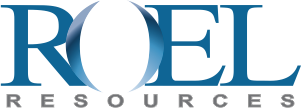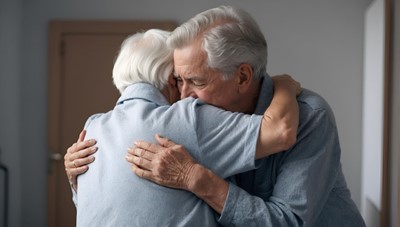As we swing into June, the beginning of Alzheimer’s and Brain Awareness Month, I’ve been thinking a lot about my mother, who passed away several years ago from the disease. For almost 24 years, my three brothers and I took care of Mom, a brave and remarkable woman who was able to age in place at her home of 64 years before succumbing to Alzheimer‘s.
Like millions of family caregivers, we had myriad challenges taking care of Mom in her later years, even with the help of a 24/7 live-in aide. According to a recent report from the Alzheimer’s Association, an estimated 7.2 million Americans ages 65 and older are living with Alzheimer’s today, an increase of about 300,000 cases from a year ago. It is the 6th leading cause of death in the United States, the only top-10 deadly disease not to have a treatment or cure.
The total annual cost of caring for people living with Alzheimer’s and other forms of dementia will reach about $384 billion in 2025—and that figure doesn't include the cost of unpaid care from 12 million family members and friends who provide billions of hours of care valued at more than $400 billion. (You can find the full 2025 Alzheimer’s Disease Facts and Figures Report at https://www.alz.org/alzheimers-dementia/facts-figures.)
As my family discovered, the demands of caregiving go far beyond paying for care. It was a stressful, emotional journey, learning about the changing course of the disease; dealing with an array of doctors and health care specialists; navigating daily care plans with home care aides and other family members; managing Mom’s financial and legal affairs; and finally, trying to find ways to keep Mom happy and engaged, while also caring for our own health and well-being. It was a constant search for complicated answers.
A few years after Mom died, I began volunteering for my local chapter of the Alzheimer's Association. Recognizing how challenging this Alzheimer’s journey was for my own family, I wanted to give back and help the next wave of caregivers and their loved ones, sharing my experiences and knowledge, hopefully making their journey a little less arduous. I became a Community Educator, facilitating presentations for the public at various public venues, such as “Healthy Living for Your Brain and Body,” and most recently “Building Foundations of Caregiving,” part of a comprehensive series of six presentations called “The Empowered Caregiver” program.
I am now among hundreds of current and former caregivers who volunteer at the local Alzheimer’s Association chapter, as well as several other active organizations, such as the Long Island Alzheimer’s and Dementia Center and the Alzheimer’s Disease Resource Center.
After decades of stalled progress, we see significant movement in the diagnosis and treatment of Alzheimer’s. There have been breakthroughs in the development of disease-modifying therapies that target the biological changes of Alzheimer’s disease. Researchers are developing blood tests that could lead to earlier diagnosis. And we have also made progress in understanding how Alzheimer’s affects the brain, which will help us understand the experience of living with Alzheimer’s.
But big hurdles remain.
Researchers are now facing a government administration in Washington that has proposed or enacted steep cuts at the National Institutes of Health, the nation's main source of federal grants for biomedical research, including Alzheimer's and dementia. Some studies have been paused mid-stream, leaving research teams and participants stunned and confused. In addition, steep cuts have been proposed in Medicaid programs and services, which support millions of families caring for loved ones with dementia.
There's also a nationwide shortage of neurologists and geriatricians who can diagnose the disease, and patients face long wait times to see these specialists. Primary care doctors might be able to play a larger role in diagnosing patients, but these doctors will need training to help patients and families.
Still, what continues to give me the most hope is the diverse array of people I’ve met along the way. I have never met a more passionate, dedicated group of volunteers than those in the Alzheimer’s community. We share a common bond; our individual experiences are unique, but we understand each other’s feelings, the pain and struggles, the love and rewards.
You can hear the stories of two dynamic advocates in an upcoming 45 Forward podcast: Jim Taylor and Carol Steinberg (https://roelresources.com/45-forward-episode-230/). Jim serves as the President and CEO of Voices of Alzheimer’s, a patient advocacy organization whose priority is to promote speedy and equitable access nationwide to government-approved diagnostics and therapeutics for dementia. Carol Steinberg is the author of a wonderful new intergenerational children's book, Come Grandpa Meow, Let’s Fly, for families with people living with Alzheimer’s.
One abiding lesson I’ve learned from caregivers is the importance of connection. We need to keep talking to each other about Alzheimer’s and other forms of dementia. When people talk about their feelings and experiences, they change people’s minds and perceptions about the disease; stigma is replaced with dignity.
There is no question that Alzheimer’s is a terrible disease, but for family caregivers, it’s not just a matter of withstanding “caregiver burden.” What people like Jim and Carol have shown us is that caregivers can achieve personal growth, themselves, through the experience of caregiving, embracing the positive while managing the daunting challenges. We can discover that honoring those we care for is not just a matter of looking backward, preserving memories of what they once were, but continuing forward, seeking new, and perhaps unexpected ways, to love your loved one.
And that, I believe, is one of the hidden powers in our fight to end Alzheimer’s.
—Ron Roel


